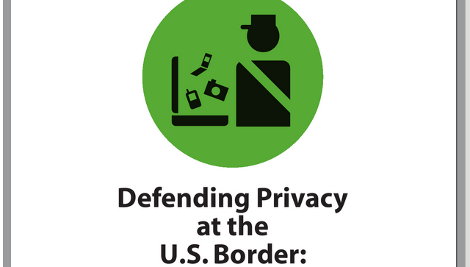
The Electronic Frontier Foundation, long-time defenders of the common man’s rights in the electronic realm, has published a guide to keeping your digital devices private when entering the United States. It seems the defenders of freedom and liberty (ICE, DHS, TSA, and CBP) are able to take a few freedoms with your liberty at a border crossing by seizing your devices and copies of the data they store for up to five days. This requires no suspicion of wrongdoing, and copies of this data may be shared with other agencies thereby negating the five day limit.
Do you have a reason to protect your digital property? This is discussed in the paper. It may be confidential information, by way of a business contract or professional relationship (Doctors, Lawyers, Journalists, etc.). Or you may just want to keep your privacy on principle. No matter what your stance, the EFF has covered all the bases in this intriguing read. We think the best advice they give is to make an encrypted backup of your data on the internet, blank your computer before the border crossing, and restore it when you get to your destination. If you don’t have the data with you, it can’t be compromised. It that’s not an option, they have plenty of guidelines on cryptographic techniques.
Continue reading “EFF On Securing Digital Information When Crossing The Border”











